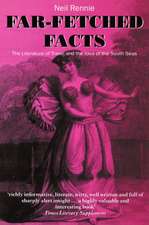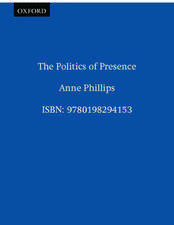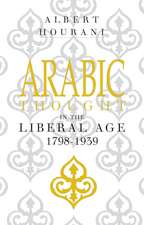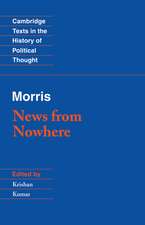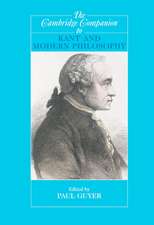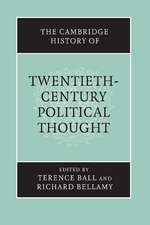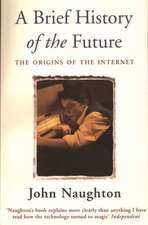The Politics of the Human: The Seeley Lectures
Autor Anne Phillipsen Limba Engleză Paperback – 18 mar 2015
| Toate formatele și edițiile | Preț | Express |
|---|---|---|
| Paperback (1) | 202.04 lei 22-36 zile | |
| Cambridge University Press – 18 mar 2015 | 202.04 lei 22-36 zile | |
| Hardback (1) | 546.11 lei 43-57 zile | |
| Cambridge University Press – 18 mar 2015 | 546.11 lei 43-57 zile |
Preț: 202.04 lei
Nou
Puncte Express: 303
Preț estimativ în valută:
38.67€ • 39.85$ • 32.65£
38.67€ • 39.85$ • 32.65£
Carte disponibilă
Livrare economică 10-24 februarie
Preluare comenzi: 021 569.72.76
Specificații
ISBN-13: 9781107475830
ISBN-10: 110747583X
Pagini: 157
Dimensiuni: 138 x 216 x 9 mm
Greutate: 0.18 kg
Editura: Cambridge University Press
Colecția Cambridge University Press
Seria The Seeley Lectures
Locul publicării:New York, United States
ISBN-10: 110747583X
Pagini: 157
Dimensiuni: 138 x 216 x 9 mm
Greutate: 0.18 kg
Editura: Cambridge University Press
Colecția Cambridge University Press
Seria The Seeley Lectures
Locul publicării:New York, United States
Cuprins
Acknowledgements; 1. The politics of the human; 2. Humans, with content and without; 3. On not justifying equality: Rorty and Arendt; 4. Dignity and equality; 5. Humanism and post-humanism; Bibliography; Index.
Recenzii
'Anne Phillips' book is a hugely engaging critique of both descriptive and abstract accounts of the human as a basis for contemporary politics.' J. M. Browne, University of Cambridge
'This is a brilliant and incisive intervention into contemporary political conceptions of the value of the human. Phillips persuasively rebuts widely accepted arguments about grounding a substantive notion of the human in dignity, an essence, or on scientific evidence. The Politics of the Human does not deal in abstractions or evade the question of embodied power. Rather, it seeks to affirm equality in and through human difference. These innovative and engaging lectures show how the affirmation of difference is required if we are to see that equality is a political creation and achievement rather than something discovered through argument or reason.' Moira Gatens, University of Sydney
'Anne Phillips writes in a humane and even-handed way about how to understand the human, now: as status or claim? Drawing on a wide range of authors, from Arendt to Habermas, Butler to Bennett, Phillips builds a compelling case for the human as claim. Whether readers agree with her or not, none will come away unimpressed by the warmth and clarity of her vision in these Seeley lectures.' Bonnie Honig, Brown University, Rhode Island
'In her compelling and accessible account of the politics of the human as an enactment of our commitment to equality, Anne Phillips decisively liberates political theory from the futile search for the 'foundations' of human beings, and in doing so remaps the conceptual terrain of a number of key debates.' Nicola Lacey, London School of Economics and Political Science
'… an insightful, engaging examination of various dimensions of 'the human' as related to contemporary politics. Phillips astutely lays out the important normative and legal work that categorizations of humanness perform - in the extension of rights or asylum, in creating justifications for humanitarian intervention, and so on. However, her primary task is to draw attention to some of the inadequacies in the way that contemporary understandings of the human have been defined and their political implications. In an impressively accessible and wide-ranging analysis, she resists defining the human substantively according to some description of shared, essential features, tracing the problems with such an understanding. At the same time, she resists a bland account of the human rooted in abstract notions that might paper over powerful markers of difference based on gender, race, religion, sexual identity, and the like. … Throughout, her analysis is provocative and richly detailed while managing to retain lucidity and striking clarity. … Recommended.' R. W. Glover, Choice
'This is a brilliant and incisive intervention into contemporary political conceptions of the value of the human. Phillips persuasively rebuts widely accepted arguments about grounding a substantive notion of the human in dignity, an essence, or on scientific evidence. The Politics of the Human does not deal in abstractions or evade the question of embodied power. Rather, it seeks to affirm equality in and through human difference. These innovative and engaging lectures show how the affirmation of difference is required if we are to see that equality is a political creation and achievement rather than something discovered through argument or reason.' Moira Gatens, University of Sydney
'Anne Phillips writes in a humane and even-handed way about how to understand the human, now: as status or claim? Drawing on a wide range of authors, from Arendt to Habermas, Butler to Bennett, Phillips builds a compelling case for the human as claim. Whether readers agree with her or not, none will come away unimpressed by the warmth and clarity of her vision in these Seeley lectures.' Bonnie Honig, Brown University, Rhode Island
'In her compelling and accessible account of the politics of the human as an enactment of our commitment to equality, Anne Phillips decisively liberates political theory from the futile search for the 'foundations' of human beings, and in doing so remaps the conceptual terrain of a number of key debates.' Nicola Lacey, London School of Economics and Political Science
'… an insightful, engaging examination of various dimensions of 'the human' as related to contemporary politics. Phillips astutely lays out the important normative and legal work that categorizations of humanness perform - in the extension of rights or asylum, in creating justifications for humanitarian intervention, and so on. However, her primary task is to draw attention to some of the inadequacies in the way that contemporary understandings of the human have been defined and their political implications. In an impressively accessible and wide-ranging analysis, she resists defining the human substantively according to some description of shared, essential features, tracing the problems with such an understanding. At the same time, she resists a bland account of the human rooted in abstract notions that might paper over powerful markers of difference based on gender, race, religion, sexual identity, and the like. … Throughout, her analysis is provocative and richly detailed while managing to retain lucidity and striking clarity. … Recommended.' R. W. Glover, Choice
Notă biografică
Descriere
An elegant and forceful argument that represents the claim to equality as central to the meaning of being human.













